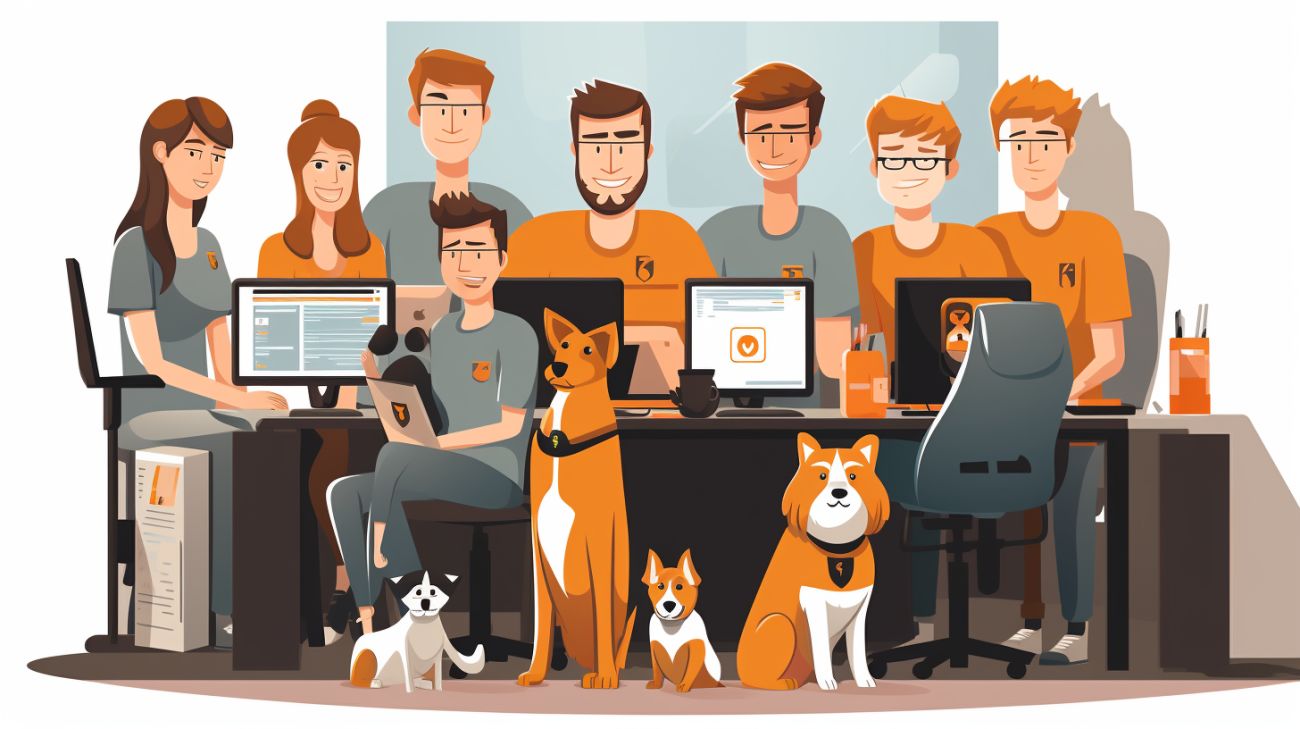Key takeaways
The odds of finding a lost dog are high. While most pups are found within 24 hours, it's still very likely you'll find your furry friend after this.
Factors like your dog's personality, where they got lost, and why they ran away can impact the chances of finding them.
We explore three ways to increase the odds of finding your lost dog, including utilizing social media through PetRadar.
Quick Navigation
What are the chances of finding a lost dog after 24 hours?

What impacts the chances of finding a lost dog?
Their personality
Hiking trails
Farms
Abandoned buildings
Outbuildings in gardens
Garages
Quiet streets


Why they ran away
They are scared: If a dog's fight or flight instinct is triggered, they can run away. This can be because of loud noises, big crowds, or busy roads. When scared, they can run very far and hide in very secluded spots, which can make it very hard to find them.
They are bored: If they're bored or just fancied an adventure, they are unlikely to wander too far. They may have just gone round the corner to make friends with the neighbors or chased a squirrel for a while! This means they're likely to be near where they left off.
Mating instinct: If your dog hasn't been neutered, then they will have a very strong instinct to mate. This means they can take off to find a suitable dog to mate with. This does mean that they are likely to travel far. However, they are also likely to return home.

Where they ran away

3 ways to increase the chances of finding your lost dog
1. Tap into their senses
Hearing: Dogs can hear a sound from a mile away (1.6km) (source). This means that calling their name, shaking a bag of treats, and using a dog whistle or other familiar sound can make your search a lot more effective.
Smell: Dogs are known for their powerful sense of smell. This is why they are used in plenty of industries like the police force and the army. They can smell your scent from very far away, and studies have shown that they will associate their owner's scent with positive things (source). This means bringing old blankets, toys, and even clothes could help make your scent more powerful. It could even comfort them if they're hiding nearby!

2. Utilize social media
Join local groups on WhatsApp and Facebook. These can be a fantastic way of spreading the message quickly to people nearby.
Post on your personal accounts. Many of your followers likely live nearby and are family and friends willing to help.

3. Call local shelters and vets

FAQs
How far can a dog travel in a day when lost?
This depends on the type of dog and their age. Fit, larger dogs can run 5 miles (8km) easily in a day, whereas older dogs or smaller dogs may struggle to run just a mile.
How long is the average dog missing?
The average pet dog is normally only missing for 24 hours. Over 90% of dogs are found within the first 24 hours, and after this, the chances of finding them begin to drop.
What is the probability of finding a lost dog?
There is a high probability of finding a lost dog. 93% of lost dogs are found, which gives owners a huge chance of being reunited.
How long will a scared dog hide?
It's hard to determine how long a scared dog will hide. It can range from hours to days, depending on the reason they are hiding.
How long should you look for a lost dog?
You should look for a lost dog until you find them. However, the first week is the most important for thorough physical searches. After this, you should focus on reported sightings and calling local shelters.
What do dogs do when they go missing?
What dogs do when they go missing depends on the type of dog. An adventurous, outgoing, and friendly dog will likely find neighbors to socialize with and parks full of dogs. Whereas a more timid dog may choose to find a quiet backstreet or an abandoned building to hide in.
Do lost dogs stay close to home?
Dogs have great homing abilities. This means that most lost dogs will stay close to home because they will understand their surroundings. When they stop recognizing where they are, they will feel scared and uncomfortable.
What attracts a lost dog?
Sounds and smells can attract a lost dog because of their powerful senses. They can recognize your scent from very far away, so bringing blankets and toys can help them find you. Treats and food can also help attract them. Calling their name and shaking a food bag can also help attract a lost dog because they have a powerful sense of hearing.



